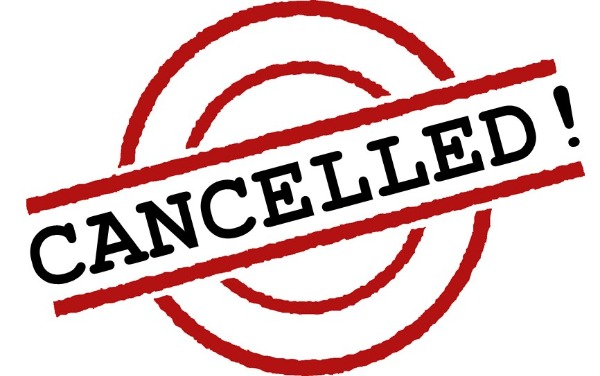Cancel Culture
 The phrase "cancel culture" is showing up in the news more frequently. Cancel culture (or call-out culture) is the term sometimes used when someone is shut out of a social or professional group. This could be either online (particularly on social media), in the real world, or both. Those who are subject to this ostracism are said to be "canceled."
The phrase "cancel culture" is showing up in the news more frequently. Cancel culture (or call-out culture) is the term sometimes used when someone is shut out of a social or professional group. This could be either online (particularly on social media), in the real world, or both. Those who are subject to this ostracism are said to be "canceled."
I wrote earlier about moderating content and issues about freedom of speech. One conclusion in that article was that private companies (Twitter, Facebook, et al) have the right to remove accounts that violate their terms of service and that is not a freedom of speech issue.
Let's look at definitions of a non-legal nature. Merriam-Webster says that "cancel" means "to stop giving support to that person." Dictionary.com has a pop-culture dictionary that defines "cancel culture" as "withdrawing support for (canceling) public figures and companies after they have done or said something considered objectionable or offensive."
The latest spin on the expression "cancel culture" has given it a more negative connotation. Some politically conservative people and groups view recent examples (like Donald Trump being removed from Twitter) as a free speech and censorship issue. My thoughts on that are clear in that earlier post.
Cancel culture or call-out culture can also be less "official" when large numbers of people boycott an individual or company or group who they feel has acted or spoken in a questionable or controversial manner.
When President Biden was inaugurated, a number of accounts changed hands. As has always been the case, the @whitehouse Twitter account has different administrators with a new President. The @POTUS and @FLOTUS accounts also have new administration.
When those kinds of changes occurred, many followers of those accounts unfollowed them. Is that "cancel culture"? No one would have used that term when Barack Obama became President, but people did follow or unfollow those accounts at the time of Presidential change too. Of course, former President Obama still has a Twitter account as simply @barackobama as do other living ex-Presidents.
For individuals losing access to social accounts or any form of cancel culture, it can mean losses to reputation, personal branding, and possibly income. For a company or group to lose access, the income portion can be a much greater concern, though all three things are important.
Trackbacks
Trackback specific URI for this entryThe author does not allow comments to this entry
Comments
No comments